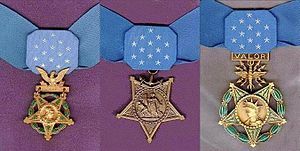Who says I don’t ever post good news?
NSA scandal delivers record numbers of internet users to DuckDuckGo
Charles Arthur, The Guardian
Wednesday 10 July 2013 12.25 EDT
(Y)ou’ve probably never heard of DuckDuckGo. … You won’t find it offered as an alternative default search engine on any browser, on desktop or mobile. Using it is very definitely an active choice, whereas using Google is the default option on most browsers. And 95% of people never change the default settings on anything.
But this 20-person business offers what none of the big search engines do: zero tracking. It doesn’t use cookies or store data about its users’ IP addresses, doesn’t offer user logins, and uses an encrypted connection by default. (Google provides an encrypted connection for logged-in users, but not automatically for non-logged in users.) If the NSA demanded data from DuckDuckGo, there would be none to hand over.
…
(H)e (Gabriel Weinberg) noticed growing amounts of junk sites in Google results – pushed there by experts who had gamed the giant’s algorithms. He decided that by hooking into web services such as Wikipedia, Yelp and Qype, he could get focused answers cheaply. By using a combination of those services and crowdsourced links, he built the site’s first search index.
Of the privacy angle, he says: “I kind of backed into that.” It wasn’t a political decision, but a personal one. “It’s hard to define my politics. I take every issue seriously and come to my own conclusion. I don’t really feel like I belong to any political party in the US … I guess I’m more on the liberal side.”
The reason he decided not to store search data was because it reveals so much about us. In 2005, AOL accidentally released details of searches made by 650,000 of its users via Google; reporters from the New York Times were able to use the information to identify one of the users: a 62-year-old woman in Georgia. Nowadays Google would also have your IP address (indicating your ISP and perhaps precise location) and, if you were logged in, all your previous search history. If you logged in to use Google on your mobile, it would have your location history too.
Having decided that searching is intimately personal, he deduced that governments would want to get hold of search data. “I looked at the search fiascos such as the AOL data release, and decided that government requests were real and would be inevitable, and that search engines and content companies would be handing over that data [to government] in increasing amounts.”
Search data, he says, “is arguably the most personal data people are entering into anything. You’re typing in your problems, your desires. It’s not the same as things you post publicly on a social network.”
So why does Google store it? “It’s a myth that Google needs to store all this data about you. Almost all the money they make on search is based on what you type into the search box. Nothing more. They need to track you for their other services – Gmail, YouTube – because those are hard to monetise, and that’s why you get ads following around the internet all the time.” (Google owns DoubleClick, the largest display ad supplier online.)
I’ve made DuckDuckGo the default search on all my browsers and find it gives better answers than Google because it doesn’t just keep recycling the same results you’ve already seen. Also, you can use any other search engine anytime (if DuckDuckGo runs out of results it gives you the choice of continuing your search on Google, Bing, and Yahoo).
Tiny Utah-based ISP makes a name for itself by rebuffing government snoops
Rory Carroll, The Guardian
Tuesday 9 July 2013 11.49 EDT
Xmission, Utah’s first independent and oldest internet service provider, has spent the past 15 years resolutely shielding customers’ privacy from government snoops in a way that larger rivals appear to have not.
The company, a comparative midget with just 30,000 subscribers, cited the Fourth Amendment in rebuffing warrantless requests from local, state and federal authorities, showing it was possible to resist official pressure.
“I would tell them I didn’t need to respond if they didn’t have a warrant, that (to do so) wouldn’t be constitutional,” the founder and chief executive, Pete Ashdown, said in an interview at his Salt Lake City headquarters.
Since 1998 he rejected dozens of law enforcement requests, including Department of Justice subpoenas, on the grounds they violated the US constitution and state law. “I would tell them, please send us a warrant, and then they’d just drop it.”
Ashdown, 46, assented just once, on his lawyer’s advice, to a 2010 FBI request backed by a warrant from the Foreign Intelligence Surveillance Court.
…
The Electronic Freedom Foundation called it a model for the industry. “XMission’s transparency report is one of the most transparent we’ve seen,” said Nate Cardozo, a lawyer for the San Francisco-based advocacy group.
…
Utah is an unlikely home for an internet privacy champion. The state’s conservative politicians cheered the Bush-era Patriot Act and welcomed the NSA’s new 1m sq ft data centre at Bluffdale, outside Salt Lake City.
Ashdown, who toured the facility with a group of local data centre operators, said he had not received NSA information requests but saw irony in it siting its data behemoth in his backyard.


 Welcome to the
Welcome to the 


